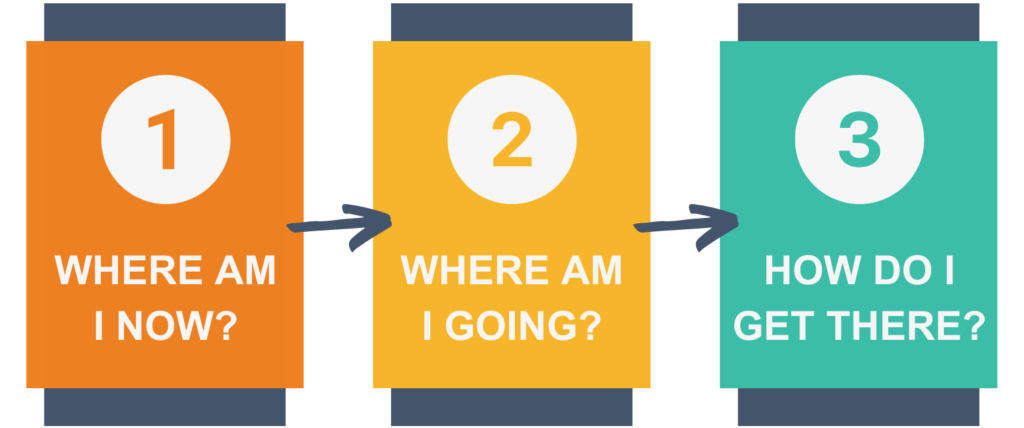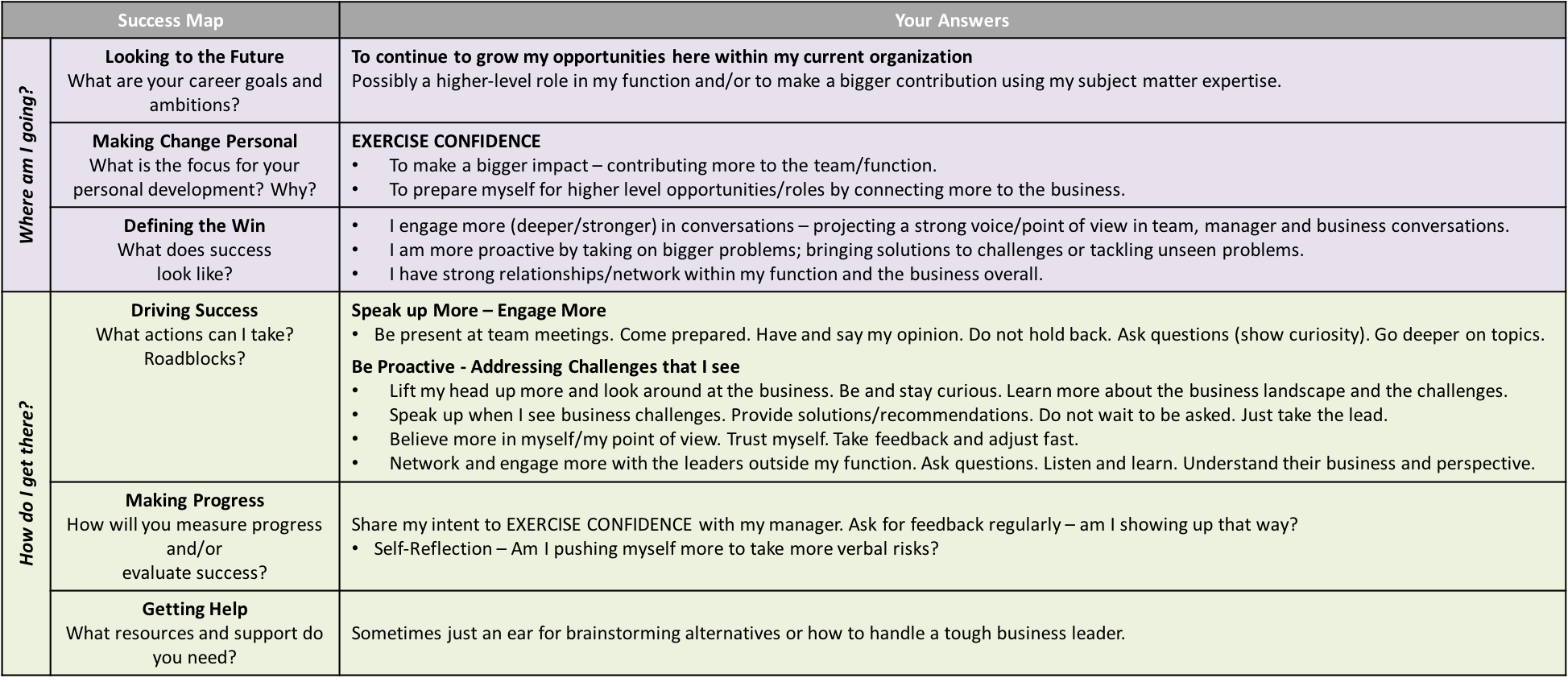Development plans are a pivotal step in fostering career growth and enhancing capabilities. Implementing development plans in an organization has a profound impact on individuals’ career trajectories AND the overall success of an organization – a true win-win!
We are passionate about helping people create amazingly effective development plans and empowering them to be the driver of their own career. And now you can too! Plus, integrate these tips in your own development plan and you’re sure to be on a path to success.
This post presents the nitty gritty about writing a development plan. Recently, we also hosted an in-depth webinar on this topic, where we dove into the context for development plans, including career dilemmas, Shared SuccessTM, Individual Needs, Winning Action StrategiesTM and more! Check out the video and recap here: Crafting a Meaningful Development Plan
Why should we care about development plans, again?
Development plans are more than performance expectations and more than goal setting. They’re a roadmap to personal and professional growth all based on personal change. They help individuals align their career objectives with their personal values and the needs of the company. For leaders, guiding your team through the process of creating a development plan starts with asking three critical questions that set the foundation of the plan. This approach ensures that the development plan is not just a formality, but a powerful tool for growth and achievement.
Three Critical Questions
These questions are the foundation of your plan.

Part 1: Where am I now?
The journey to a successful development plan begins with self-reflection. In order to figure out where you want to go, you have to first look at where you’ve been. Take a deep dive into three important aspects:
- In terms of your career, what’s most important to you? Think about the experiences you’ve had that have been meaningful for you.
- What are your most important needs? Don’t only look at what isn’t met. Also think about the needs that are met and
- What are the organization’s needs? How do the organization’s needs apply to you and how do you meet them already?
Think about the skills, experiences and aspects of your work that you find most fulfilling. Don’t forget to consider feedback you’ve received and how it aligns with your career aspirations.
Part 2: Where am I going?
The next step is defining your destination. Contemplate these three aspects:
- Look to the future: What’s your ambition? Imagine your career aspirations for 1, 3 and 5+ years from now. Think future roles, goals and capabilities. Be specific!
- What personal change will help you reach your goal? This is where you choose your development focus, i.e., how you will personally change to achieve your career aspirations. We highly recommend using our Winning Action Strategies for this, but any personal change will work. Examples include: exercising more confidence, practicing regular self-reflection and understanding the “game” (in other words, learning more about what makes your company and the people around you tick).
- Define the win: What is your vision for success? If you were to fully embody your personal change, what would success look like? What are you doing differently? How do you feel? What are you achieving?
The growth you make will be defined by these decisions. Think and decide carefully!
Part 3: How do I get there?
If Part 2 is the “what,” this is the “how.” Now that you understand where you are and where you want to go, you can determine how to get there. Of course, we have three questions to get you started:
- What actions can you take? Think about specific behaviors, to do’s, thoughts and feelings that you might want to start, stop or continue.
- How will you evaluate success? Assess yourself through self-reflection, feedback and real outcomes. Metrics for personal change might not always be quantifiable, but you should be able to tell if you’ve made progress or not over time. If you’re not making progress, make adjustments to the plan!
- What resources/support do you need? Sometimes you need a little help. And that’s ok! Identify what you need and talk to your manager or someone you trust. You never get what you don’t ask for!
Once you determine the “how,” get to it! There’s no time like the present to get started on your plan.
Sample Development Plan
Here’s an example of someone working on Exercising Confidence:

To see more sample plans, download the free resources from our recent webinar on crafting a meaningful development plan: Resources. The resources also contain other content from that webinar.
5 Tips for Writing a Successful Development Plan
1. Be Specific and Actionable: In the actions section of Part 3, try to include specific actions you can take by a certain date. Too vague and you won’t know if you’ve accomplished it. If you complete the actions listed, add more! If any of them become obsolete, change them up! (Check out next week’s post for more tips on choosing the right actions!)
2. Stay Flexible and Adaptable: Change is the only constant in life. Your development plan is not set in stone. It’s a living, breathing document that should evolve and grow as your circumstances change. Be prepared to reassess and adjust your goals and strategies in response to new opportunities, challenges and insights.
3. Seek Feedback and Collaboration: Feedback is a powerful tool for growth. Regularly seek insights from people you trust, including mentors, peers and your team. Collaboration and open dialogue foster a supportive environment that can significantly enhance the effectiveness of your development plan.
4. Review and Reflect Regularly: Set aside time to review your plan and reflect on your progress. Periodic check-ins with yourself and your manager help you track your progress and maintain momentum. Use these sessions to celebrate achievements, identify roadblocks and adjust your plan as necessary.
5. Leverage Resources and Support Systems: Utilize any and all resources available to you to help enhance your knowledge and skills and support achieving your goals. This could include e-learning courses, professional development workshops, networking groups, mentorship programs and more!
A successful development plan is dynamic and guides individuals toward their career goals while aligning with the strategic needs of the organization. Embrace personal change, follow the outlined steps, and help your people craft a development plan that helps them and the organization grow and thrive.
Love the idea, but need help implementing this yourself? That’s why we created GrowWise: the ultimate development planning tool. Let GrowWise do the work for you and guide your employees through a supportive, impactful and empowering career development journey. Reach out to schedule a demo.
